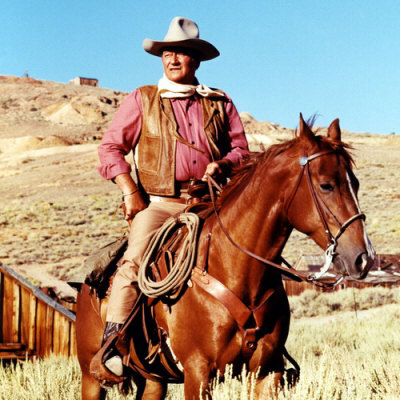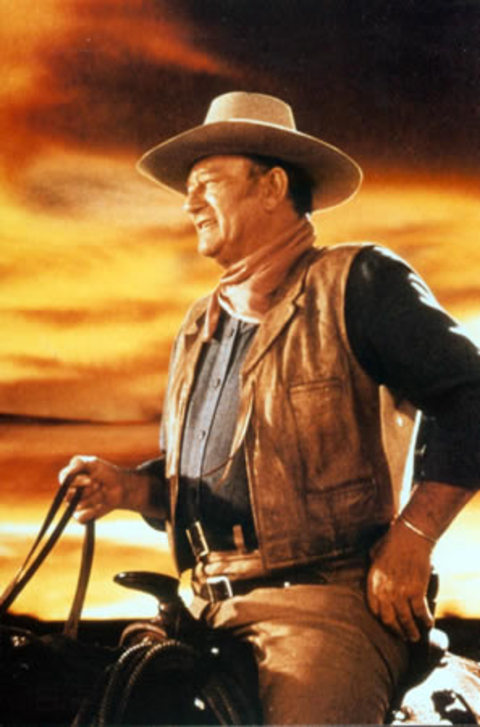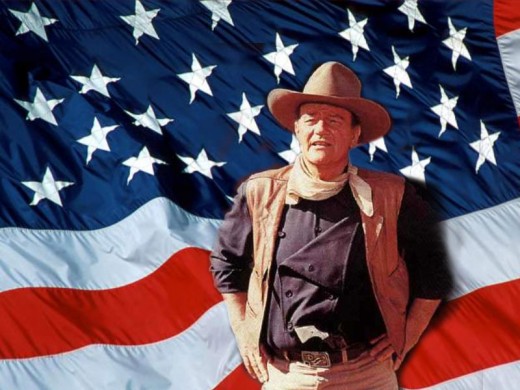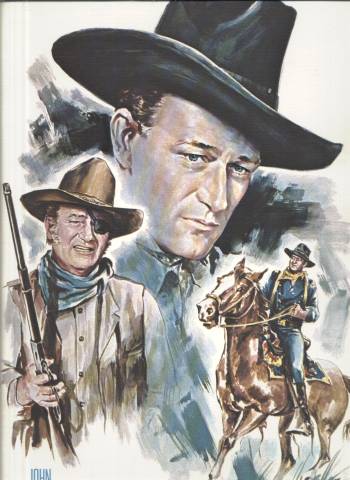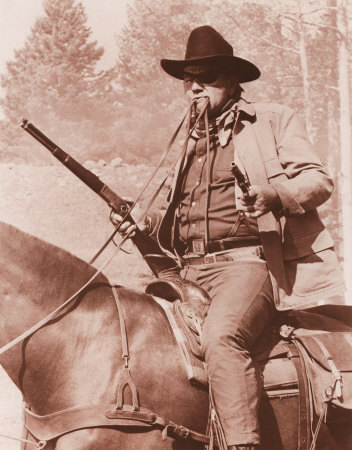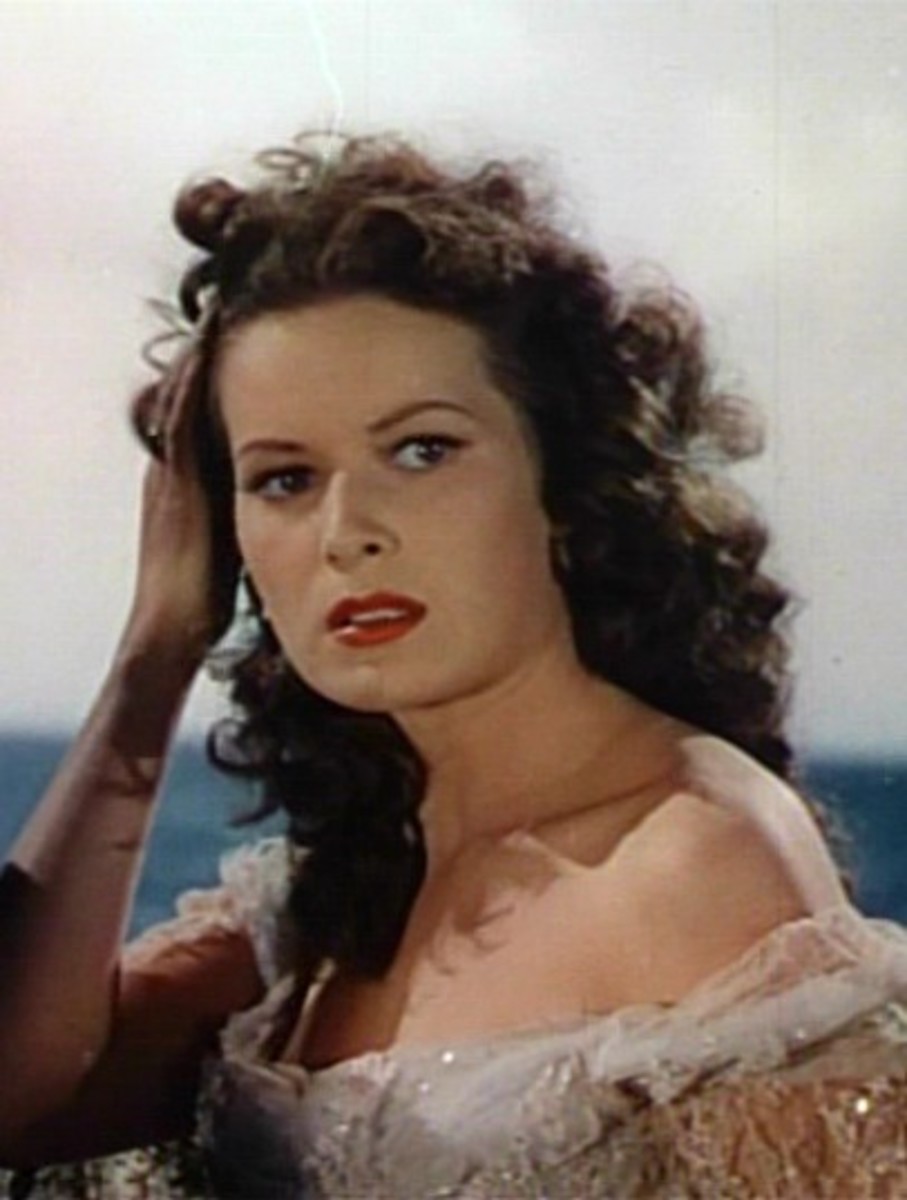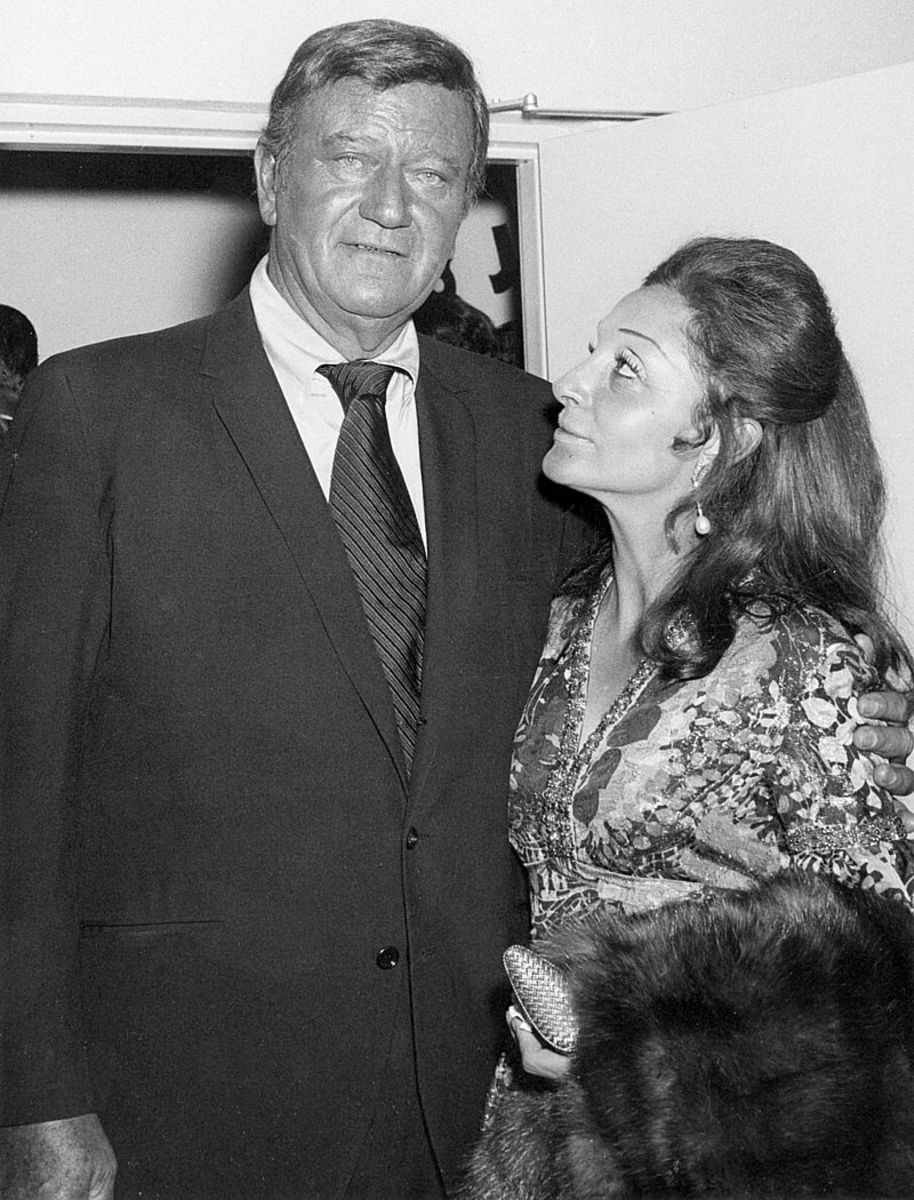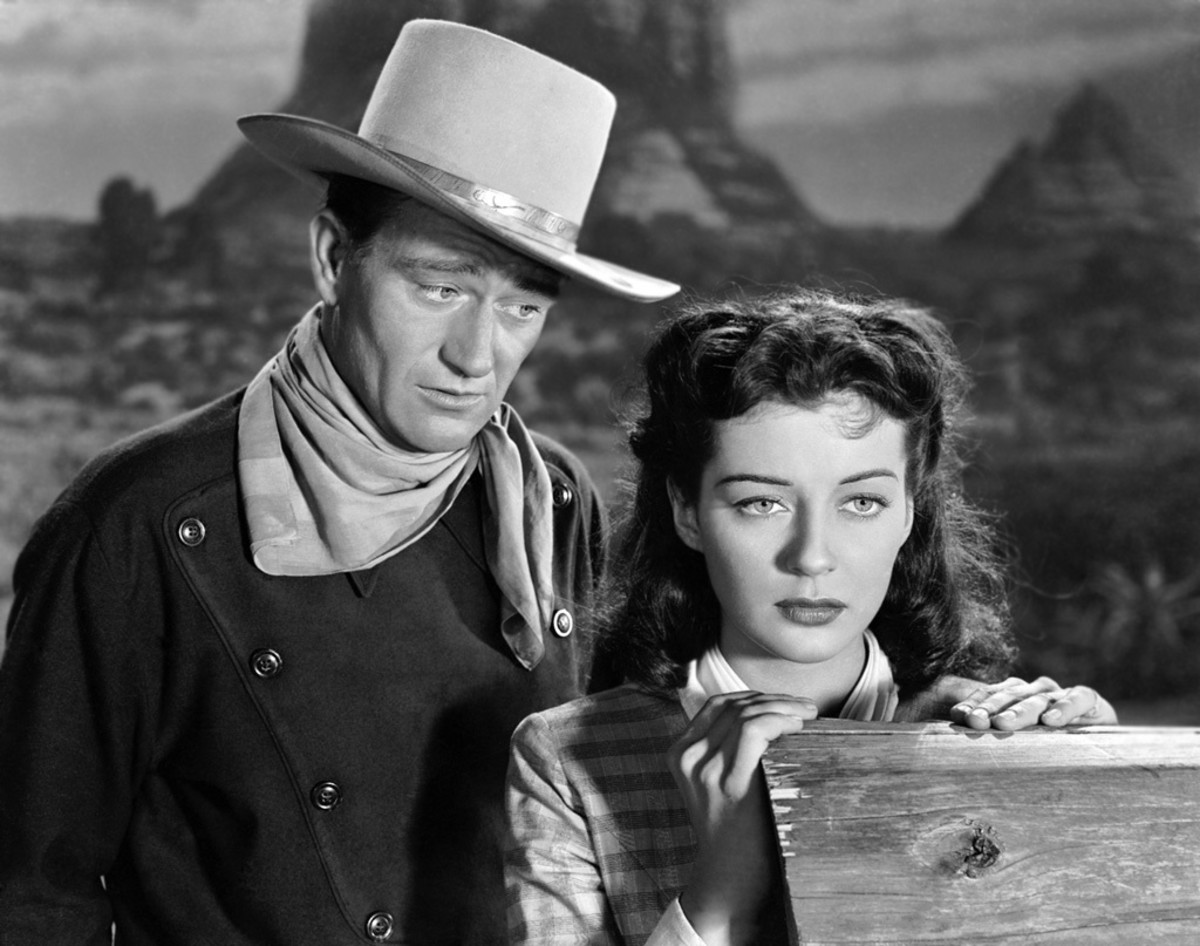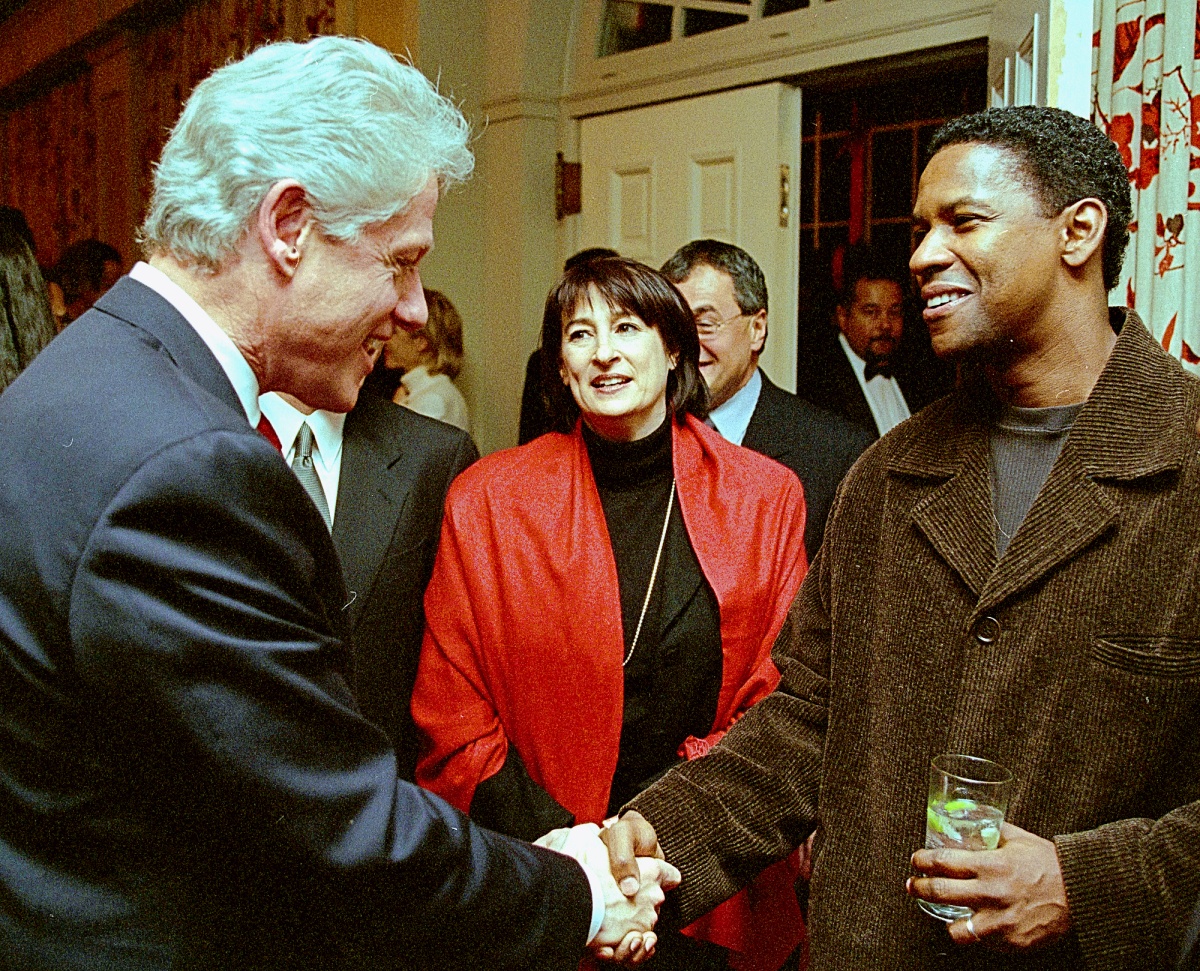John Wayne: A Human Hero (book review)





John Wayne is an American hero, a man who is seen as being strong and confident. John Wayne is the man that every man aspires to be and the man that every woman wants to have in her life. John Wayne is an inspiration to others. John Wayne is the hero that everyone wants to believe that they can be, the good guy who makes you believe that good guys don’t always come in last place. And yet, the man that we see on the silver screen is not the only man that John Wayne was. In his full-length biography, Duke: The Life and Image of John Wayne, Ronald L. Davis manages to let readers in on the human side of John Wayne without destroying the larger-than-life image that has made John Wayne a hero for so many people throughout the years. That’s why this book is a particularly good book for anyone who is a fan of John Wayne.
Davis relies on information gleaned from extensive interviews with people who knew John Wayne personally to obtain insight in to the real man behind the icon. The book contains interviews from such sources as co-stars Maureen O’Hara and Hank Worden, crew members who worked with John Wayne and personal friends of the icon. Davis shapes this information in to a framework which highlights Wayne’s personal and professional changes throughout the years, leaving the reader with a greater understanding of who John Wayne was both on and off screen and how he incorporated both sides of himself in to a full and rich life. John Wayne is remembered in this book not only by those people who knew him intimately but also by the many, many fans whose lives were touched by his movies.
With a man as renowned for his strength as John Wayne, it must be difficult to write a biography that shows his weaknesses without detracting from the character of the man. Davis manages to do this in such a way that it almost seems as if it was easy to do. Davis describes the flaws in the character of John Wayne in such a manner that Wayne is able to remain almost a superhero in the eyes of the reader despite his human frailties. Davis does this by letting Wayne’s friends describe Wayne’s human side but then supplements this information with an extensive history detailing Wayne’s strength and success. Juxtaposing these two sides of Wayne, Davis leaves the reader with the image that Wayne consistently found and fixed his own flaws in order to achieve the level of fame that he reached.
As John Wayne’s friend, Budd Boetticher puts it, “Wayne wasn’t a lower-case God, he wasn’t Eisenhower running an army, he wasn’t all the things he played in movies. He was a human being that made a hell of a lot of mistakes. Duke was either very bad or very good; he was never down the middle” (quote is from Davis’s book, page 9). This view of the black-and-white life lead by John Wayne is reiterated again and again throughout the book, painting the picture of a man who may have had horrible flaws but who overcame those flaws to become a great and enduring legend.
In terms of weaknesses that are described in the book, Davis offers insight in to John Wayne’s two failed attempts to enlist in the armed forces, his struggles to maintain enduring relationships with women, and the various ups and downs of his Hollywood career. John Wayne is seen for the man’s man he was, especially when looking at his failed marriages with three different Hispanic women and his difficult relationships with his children. His career is portrayed as coming before his relationships, and the book shows the good and the bad of that career, including his early B-movie days and his ongoing dispute-filled relationship with director John Ford.
John Wayne is a man adored by many women for his strength and strength of character. A lot of women still swoon over his old movies and there are many quotes throughout the book from women who knew and loved him. Despite this image, John Wayne apparently had great difficulty with women in real life. Davis contrasts the high opinions of John Wayne held by women who didn’t know him or who only knew him slightly with facts and information about his difficult relationships. For example, the confidence exuded by John Wayne on screen is contrasted with his own description of his shyness when meeting his first wife. Supposedly Wayne mentioned that he needed the assistance of a good strong dose of whiskey to help him to overcome the feeling of shyness that overtook him and threatened to prevent him from getting to know his wife in the early days of their courtship. These contrasting views of Wayne as a ladies man but also a shy guy are laid side-by-side in the biography, with little comment from Davis, so readers can draw their own conclusions, leaving long-held images of John Wayne as hero intact.
Set against the backdrop of the movies in which John Wayne starred, this biography paints the picture of a man whose persistence got him to the places he wanted to be. John Wayne may be human, but he is one of the humans who have managed to win a place in the heart of thousands of fans, and this book is more a tribute to his human successes than a gossip story about his failures. This book does a great job of depicting all of this. Recommended read!

